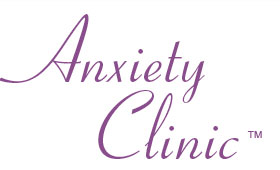*****WE ARE OPEN FOR APPOINTMENTS*****
Face to Face and Webcam Consultations available.
Anxiety Clinic - Post Traumatic Stress Disorder
PTSD Treatment in Stoke on Trent & Newcastle under Lyme
Post Traumatic Stress Disorder or PTSD as it's commonly abbreviated to, is a psychological disorder brought about through severe emotional trauma. Although PTSD is often associated with front-line military personnel - it can affect anyone. On this page you'll learn specifically how PTSD is created, how it is maintained, the most common symptoms, how it is traditionally treated (and why these 'accepted methods' can be unsuccessful) and perhaps most importantly of all - how to genuinely overcome it.
How Is Post Traumatic Stress Disorder Created?
Post Traumatic Stress Disorder can be created in one of two ways. The first way is through suffering a one-off emotionally charged experience. Examples of this could involve a car accident, being assaulted or perhaps even losing a loved one. Thus PTSD could indeed happen to anyone.
The second way to create Post Traumatic Stress Disorder is through repeated or long term exposure to danger or intense emotional states (such as fear or anxiety). This tends to be the case with front line military sufferers... although as mentioned before PTSD can happen to anyone regardless of their profession.
The Basics Of How PTSD Works...

Post Traumatic Stress Disorder is essentially an extension of the minds hard wired defence system. What we mean by this is best described by example:
If you touch a hot stove and burn your hand - you instantly learn not to put your hand back on the stove and to be cautious around it in the future. This automated learning process is designed to protect us from future harm and has been instrumental in our evolution.
Being burned is an example of physical pain but there is another type of pain the mind is wired to learn from - emotional pain. The first important thing you need to learn about PTSD is that it's an emotional disorder - not a logical one.
Our emotions are a sort of involuntary barometer that let's us know how we relate to what is going on around us. This includes, situations, environments, people and relationships. Throughout life, situations, environments, people and relationships can cause us to experience negative emotions and occasionally these emotions can be very intense. Generally speaking we learn from these negative emotions that we should deal with some things differently in the future and to completely avoid others. For most of us, getting hurt emotionally from time to time is just how life is.
However, on rare occasions an emotional event can become 'stuck' leaving the person unable to simply learn the life lesson and move on. When this happens the person can obsess over specific memories and experience flashbacks to the original emotional event. Unfortunately, the obsessing and/or flashbacks tend to be accompanied by crushing emotional feelings.
Common Symptoms Of PTSD
As mentioned above, the most common symptoms of PTSD are flashbacks and obsessing over certain thoughts - each accompanied by intense negative emotional states (feelings).
- Obsessive thoughts
- Flashbacks
- Intense feelings (terror, guilt, shame, helplessness, anger, betrayal, etc)
These primary symptoms lead to a host of secondary symptoms. We have listed some common examples below, but this list is by no means exhaustive:
- Disturbed sleeping patterns
- Nightmares
- Tiredness and exhaustion
- Difficulty concentrating
- Short temper
- Aggression
- Muscle tension (unexplained aches and pains)
- Hyper arousal - Feeling constantly on edge
- Feeling withdrawn
- Physical symptoms (stomach aches, chest pains, sweating, dry mouth)
If you have some of the above symptoms and have experienced some sort of severe traumatic event (or series of events), if you haven't already consulted your GP - it may be a good idea to do so.
However, before you agree to any sort of treatment from your GP you should take time to read and take on board the content of the next section.
Traditional Methods For Treating PTSD - Do They Really Work?

By far the most widespread treatment for PTSD is medication. It's easy to assume that as medication is so popular there must be some correlation with its effectiveness. However, the clients we have worked with tell a very different story.
It's perhaps fair to say medication is prescribed for its convenience rather than its effectiveness. An average GP has seven minutes to listen to your problem, decide what to do and take some form of action, so in many ways their hands are tied by the system. Another consideration is the amount of specialised knowledge and experience a GP has with a very niche condition such as PTSD. Remember that a GP is a 'general' practitioner and hence has to know a little about everything. They're simply not specialised in the treatment of PTSD or other psychological disorders.
Medication is at best supposed to be a temporary stop gap whilst you seek out a genuine solution to your problem. So even if you've been offered medication or you're already taking it - you need to remember that it is only designed as a temporary measure rather than a permanent fix. The reason medication doesn't offer permanent recovery is because it doesn't address the underlying problem of PTSD. Medication is only designed to suppress the symptoms of PTSD and in order for it to do this - you have to take it indefinitely. This in itself can create further problems in terms of reliance upon drugs or even addiction.
If you are taking prescription medication its very important you don't just stop because you've had a change of heart. You should always consult your GP with respect to coming off medication as sometimes it is necessary to undertake a controlled withdrawal. It's not for us to give you medical advice and we're not trying to - that's your GP's job. However, we feel its only reasonable that we bring to your attention what we repeatedly hear from our clients. In many cases GP's fail to explain that medication is simply a temporary measure and should only be used for a matter of months. They can also fail to explain that medication will not cure PTSD and that some medications can become addictive. Surely its only reasonable that this should be explained to you in advance?
Counselling For PTSD - Does It Really Work?
Counselling can be an excellent resource and tool for many psychological problems. However, there are certain disorders that don't seem to respond well to counselling. Unfortunately Post Traumatic Stress Disorder is one of the conditions which seems very resistant to standard counselling techniques.
Perhaps the main reason for this 'resistance' is that counselling works predominantly with logic - whereas PTSD is an emotionally driven disorder. Logic and emotion are like water and oil respectively. Just like water and oil, logic and emotion don't mix and are not interchangeable with each other. Here's an analogy to help you understand what we mean:
Let's imagine you have a sixteen year old daughter and she's started dating a 22-year-old thug. He has no job, no qualifications, a criminal record, a drink problem, a drug problem and already has three children by three different women scattered over the city - none of which he supports. You sense your daughter is going to get hurt (at the very least) and may well end up abandoned with child as others have before her. You take your daughter to one side and explain using your finest logic how this no good, no hoper guy will being her nothing but trouble and that she should find herself a decent guy instead. You feel you make all your points well and that there's no arguing with your perfectly set out logic. However, your daughter turns to you and says "But I love him...". Now do you think she'll take on board all your well structured logic or go with her emotions?
The truth is that emotion simply out ranks logic in the mind - no matter how reasonable you like to think you are. Thus using a logic based technology (such as counselling) on an emotionally driven disorder (like PTSD) is unlikely to succeed. This implies no disrespect to counsellors, we're just trying to clarify what does and doesn't generally work for PTSD.
How To Successfully Recover From PTSD

If you've read this far you're probably serious about recovery - which is a good start. At the Anxiety Clinic we use leading edge technology which directly addresses the 'stuck' emotional processes that are responsible for your PTSD. It is these ongoing processes which keep the PTSD (and all the awful stuff that goes with it) running.
Our technology doesn't use counselling or drugs, rather it's a recovery programme that you can follow from home. You'll need to attend appointments with a specialised Consultant although this can be done in person (if you live within a reasonable distance of our Clinic) or online if you live further afield.
Our Consultants are all specialists in the field of psychological disorders and understand your problem. We can give you the tools, techniques and perspectives you require to get your life back. However, you need to be prepared to help yourself and put into practice the guidance and instructions we give you. If you're willing to do this, we can help you to recover.
Here's a link for further information on Face to Face Consultations at our Clinic in Staffordshire.
Here's a link for further information on Telephone/Online Consultations if you genuinely can't get to our Clinic in person.
If you would prefer to discuss your requirements with a Consultant you can reach us on 01782 855585.







